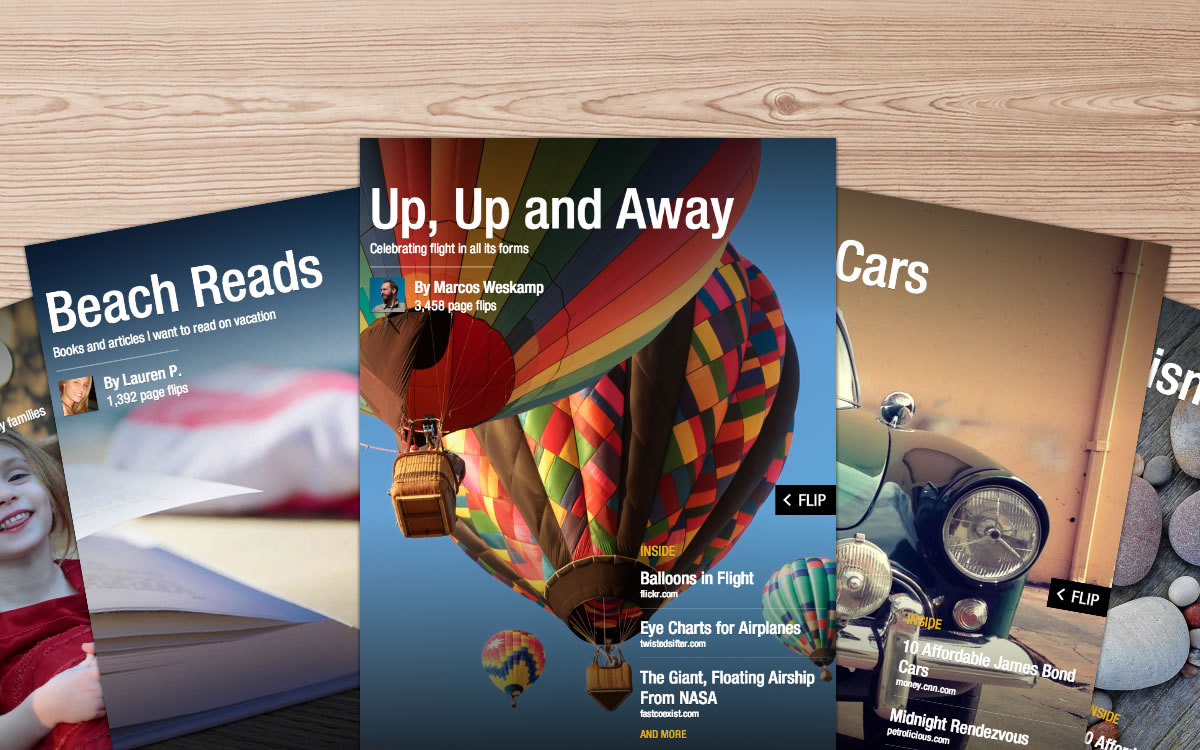Flipboard wants to kill the browser


What you share on social media sites like Facebook and Twitter could soon be corralled into your own "mini magazine" by news aggregator appmaker Flipboard. It's also a potential disruption to how people use the Web.
Flipboard announced yesterday an upgrade that is promising users the ability to self publish by doing what many already do - curating a feed of links, pictures and news that they find to be compelling or meaningful to themselves and/or others. That puts it at loggerheads with content providers and even social Web sites.
Here's why: Flipbook initially attempted to address the issue of relevancy by aggregating news sources and highlights from social media into a mobile app. It's now essentially becoming a content provider to keep eyeballs within its app and away from competing social applications - and even the Web browser itself.
Capturing a broader audience by delivering compelling content creates valuable advertising opportunities. Pinterest, Tumblr and even some content providers have done a great job building communities leveraging social feeds through the browser. Flipboard wants to become the anti-browser and so do its competitors.
That's a wise move for Flipboard because some major would-be rivals have invested in new technologies that make serious inroads into its territory: mobile. Facebook announced a major upgrade to how its news feeds are displayed earlier this month, and Yahoo just invested tens of millions to obtain mobile newsreader Summly. Most of Facebook's traffic comes from mobile devices via its apps, and content from news feeds is read within Facebook, taking eyeballs away from the Web.
There's already over 50 million Flipboard accounts, so it's possible that an in-app "periodical" could attract a major following if it delivers real value to its users. That's likely what Facebook is thinking too with its recent emphasis on building out its news feed and targeting users with mobile devices.
(image credit: Flipboard)
Related on SmartPlanet
This post was originally published on Smartplanet.com